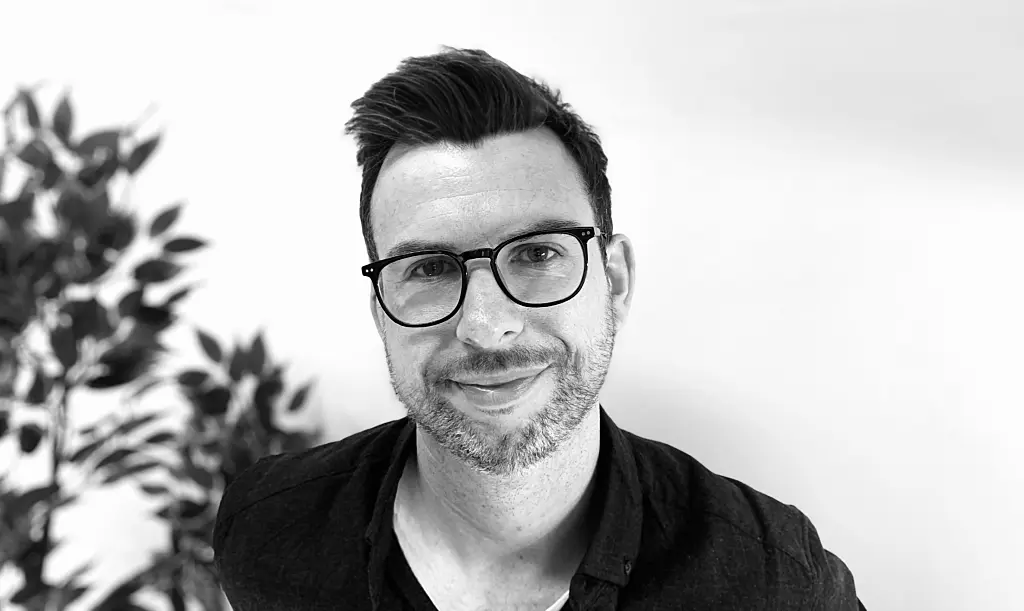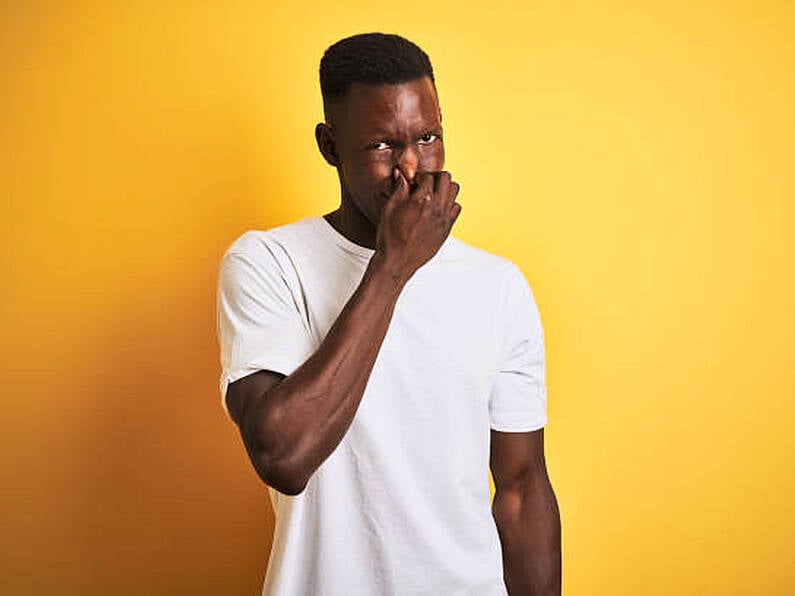James Cox
Men are often reluctant to speak out and seek help for mental health issues, many of which have been exacerbated by the Covid-19 pandemic.
Dubliner Keith Russell is aiming to help others seek help by speaking about his own experiences with depression, anxiety and body dysmorphia.
Mr Russell, from Rush Co Dublin, struggled with his problems for 25 years before speaking out.
The 40-year-old is now trying to inspire others to share their stories.
He started with a personal blog that took off, with others sharing their experiences, both named and anonymous, and this gave Mr Russell the idea to start a podcast, named 'The Endless Spiral'.
“I’ve had athletes, medical professionals, people in the media etc on my podcast and also contributing with guest blogs on my website,” Mr Russell told BreakingNews.ie. “The comedian Jason Byrne has been a big supporter. I’m trying to raise awareness of mental health with my podcast and website and hopefully inspire people to share their stories on how sport and exercise has affected their mental health.”
Body dysmorphia involves a focus on one or more perceived defects or flaws in physical appearance that are not observable or appear minimal to others. It consists of a preoccupation that causes significant distress that disrupts social and occupational functioning.
Mr Russell said he first started feeling conscious about his body when he attended life-saving classes at a local swimming pool as a teenager.
When men hear about eating disorders they think of something else, most people would, I did.
“I just didn’t feel comfortable in my own skin and my depression got worse and worse, it never went away,” he explains.
“It never eased, and I tried to commit suicide twice in my early 20s. I ended up going to a therapist after that. We’re not great communicators in my family, not great at sharing things, so I didn’t know there was a history of mental illness in my family until recently.
“The depression started from my body dysmorphia, which is something I didn’t really understand at the time.”
Mr Russell says one of the biggest issues with body dysmorphia is that many people, even those suffering with it, do not realise that it is an eating disorder.
“When men hear about eating disorders they think of something else, most people would, I did. When they mentioned eating disorders, I was thinking, ‘what?’ But when they explained the link with body images and body dysmorphia.
“The more I looked into it, I looked back to the life-saving classes and realised that’s what I had.
“I hated myself, wasn’t comfortable in my own skin with my body shape, you’re starting to develop, to notice girls, standing at the side of the pool in speedos, because you couldn't wear shorts, I went every week, and it just got worse and worse.
“When I finished that the depression stayed with me and my body dysmorphia has never gone away.
“It took me so long to find a diet and exercise routine I was comfortable with. I did everything to try and ‘fix’ my body image.
“I’d go to the gym, but I was so riddled with anxiety I couldn’t do anything in the gym. I was caught between a rock and a hard place and never really fixed anything, which is where the Endless Spiral name came from.
“I always feel like I’m in a spiral with it all. I still suffer with body dysmorphia but probably not as bad as I used to, as I’ve got older I’ve accepted it a little bit. I’d be constantly thinking about what I’m eating, when I’m going to work out, and if things didn’t work as I wanted the depression would kick in.”
While speaking about his experiences on the podcast has helped him personally, Mr Russell hopes it will help men to speak out and seek help for mental health issues, instead of suffering in silence.
“Something I’m trying to do now is to encourage men to share their experiences with eating disorders and body dysmorphia. Most people aren’t even aware that body dysmorphia is an eating disorder.”

Keith Russell is hoping to encourage others to speak out about their mental health issues.
So few men have shared their experiences with body dysmorphia and other eating disorders that there is little to no research available on these issues.
“I had a nutrition counsellor on the podcast the other day, and she was saying, there are no studies at all into men and body dysmorphia, because they just don’t come forward.”
Mr Russell hit a low ebb after losing his construction job in 2018, but he eventually made the decision to go to college and has since built a career in digital marketing.
“I was in the construction industry until 2018 when it all crashed, and I spent five or six years doing nothing, I couldn’t leave the house, didn’t know what I wanted to do, then the next phase of my depression kicked in.
“I went to more counselling, tried some medication which didn’t work for me, so then I said right I have to sort this out so I decided to go back to college and re-train. I went and did digital marketing, and ended up doing an internship in my 30s, again the anxiety was still there, but I was able to get through it and I got a job from that.
“I then had a complete and utter breakdown and was off work for a year, I’ve never felt as bad in my life. Counselling was very important, I tried a few before finding the right one. The same with the medication, it took a while to find the right one.
“I’m a digital marketing manager at an advertising agency now. I had a bit of a lapse last year and went on a different medication, it’s been brilliant along with talking to the right therapist. Before that I thought I was making progress, but now I am really.
“The Endless Spiral project has been great for me too. Just opening up, it’s therapeutic, it’s cathartic, it’s been massively helpful just being able to help others. I lost a lot of friends because I shut them out, and I was stuck in this spiral. I had to start reaching out to people, now that I’m sharing my story people around me are starting to understand what I went through and this has opened up doors with people.
“I can now speak to them, whereas before they probably just, ‘Keith’s off doing his own thing’.”
Mr Russell now tries to exercise purely for his mental health, while the growth of the podcast has also given him a positive to focus on.
“Now what I try to do is exercise for my mental health, working for my neck up rather than my neck down.
“I started it [the Endless Spiral] during the pandemic. First it was a blog just for me, people ask about my listens, but that’s not what it’s about for me.
“I have to stay focused on something with my anxiety. I said I’ll write a couple of blogs, about how I used sport as an escapism, and got such a good reaction I thought other people might like to share their stories as well.
“Then I converted it to a blogging website and I found loads of people wanting to share their story.
“The podcast exploded, I woke up one Sunday morning with an email from a guy from Australia saying how I’d helped him, and he wanted to share his story on my website.”
Since the podcast took off, Mr Russell has been contacted by Mental Health Ireland, and he is set to work with the organisation on a project for mental health awareness month.

Keith Russell launched The Endless Spiral podcast during lockdown.
“My podcast is mental health and sport, not the other way around. I don't just talk to athletes, even normal people who use sport to escape from themselves by watching their team, going for a run, a round of golf, whatever.
“The more I shared, the more I realised so many other people used it [sport] as well, even if they don’t realise it.”
His advice to anyone struggling to talk or reach out is to start by jotting their thoughts down on a piece of paper, something which he does himself regularly.
Stigma
“Get your thoughts out of your head and put it on something. Even if you write it on a piece of paper and put it in the bin, your head can be your worst enemy. That’s what I would say to people, do not be stuck in your own head.
“If you’re not yet comfortable to talk, get a piece of paper and write your thoughts down, you will not believe how helpful it can be.
“There’s a stigma with men, they often don’t want to speak out. It took my a long time because I thought an employer would look and think, 'I can’t employ him', that’s a ridiculous mindset, but that’s how a lot of people feel.
“Once you’re over that barrier you can find peace with yourself.”
If you have been affected by any of the issues raised in this article, you can freephone the Samaritans 24 hours a day for confidential support at 116 123 or email [email protected].
Alternatively, the contact information for a range of mental health supports is available at https://www.mentalhealthireland.ie/get-support/.
In the case of an emergency, or if you or someone you know is at risk of suicide or self-harm, dial 999/112.






